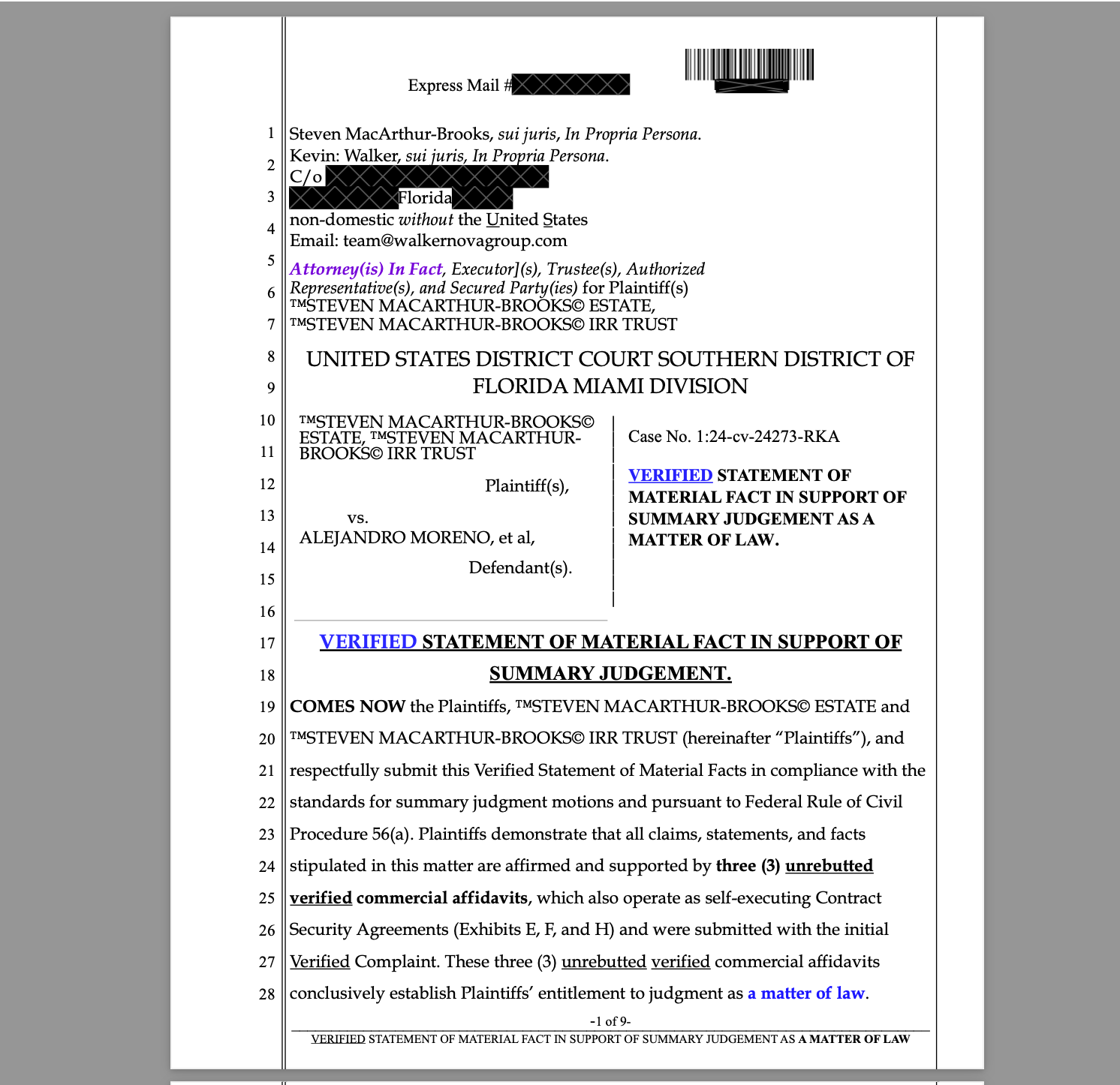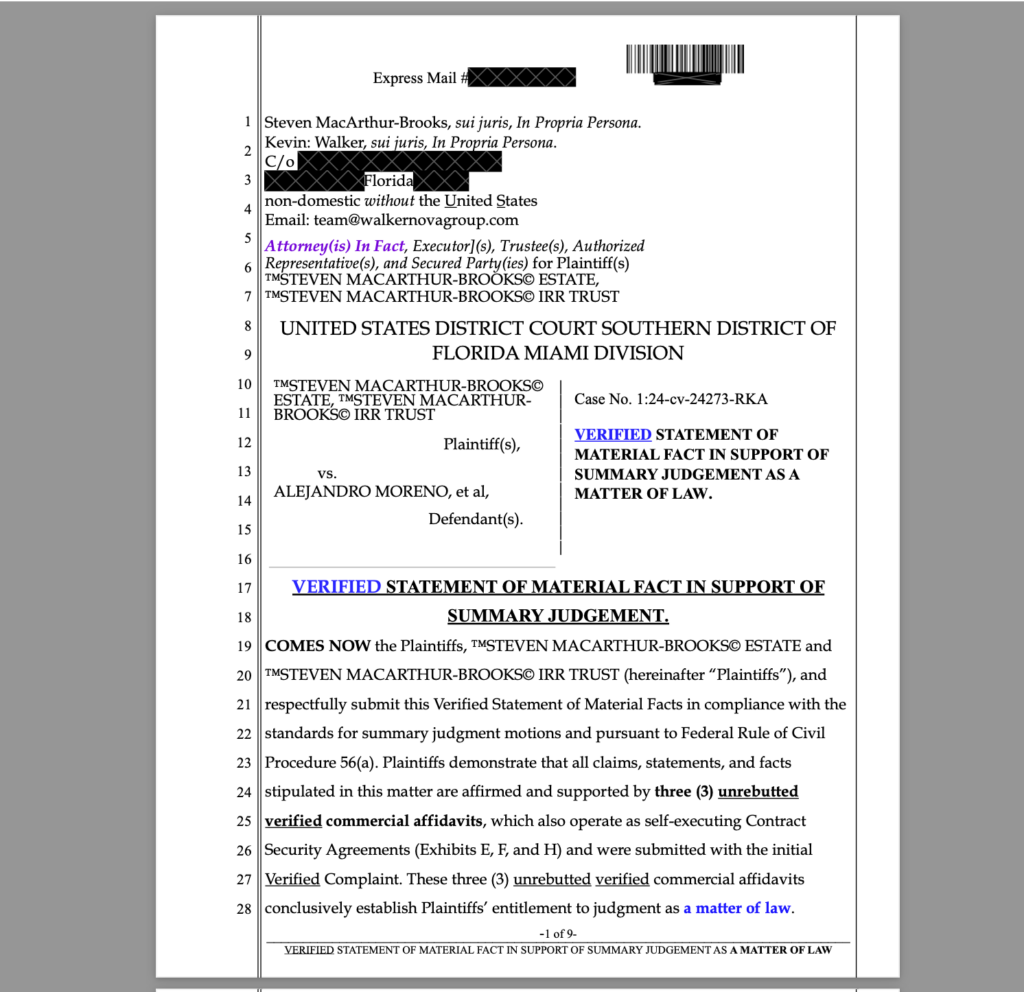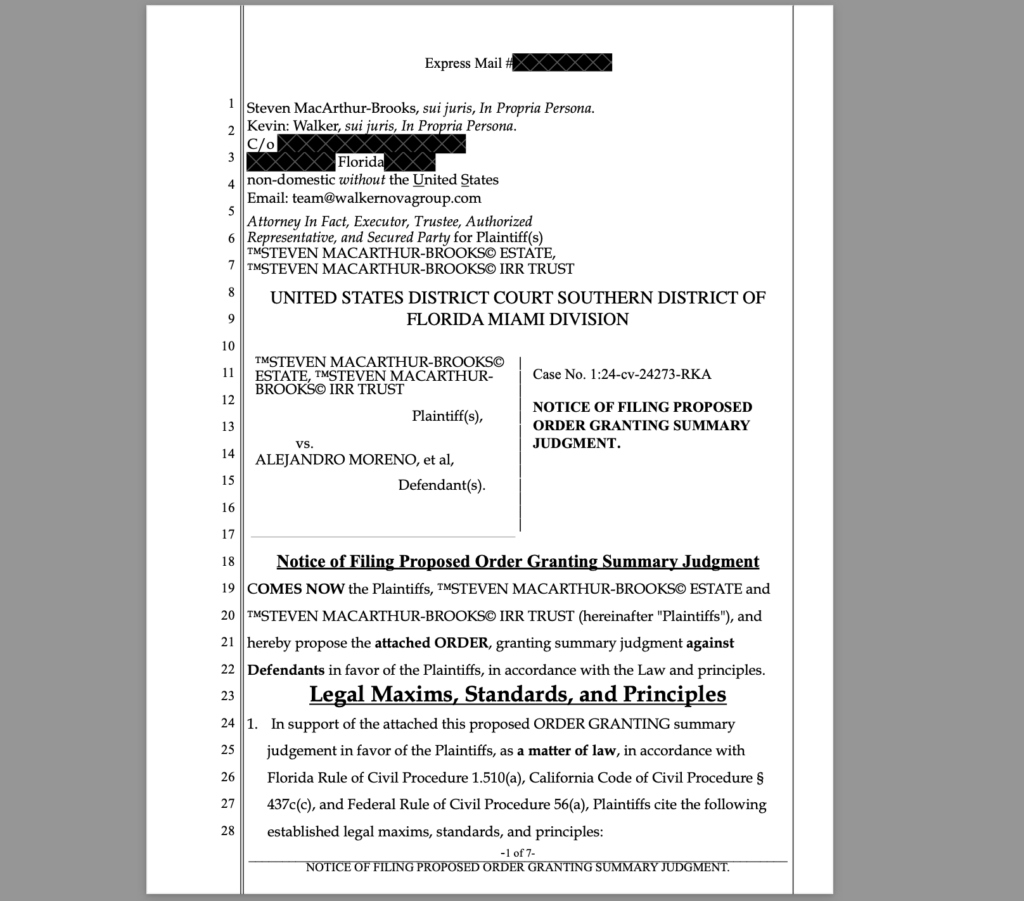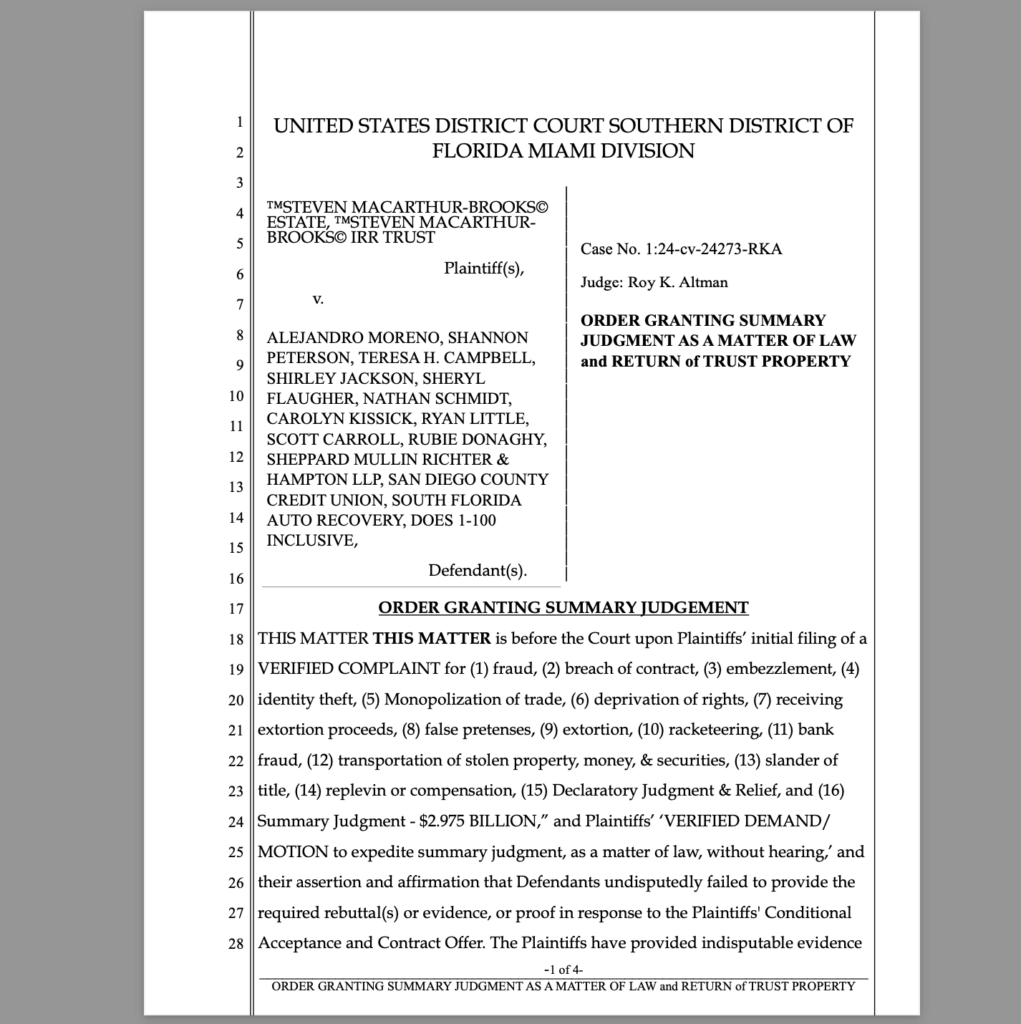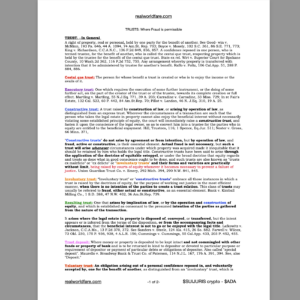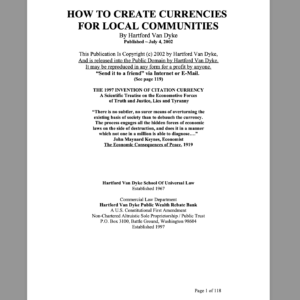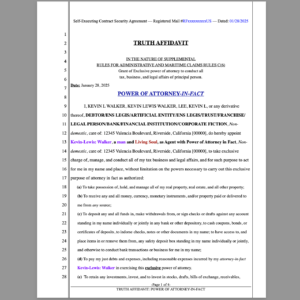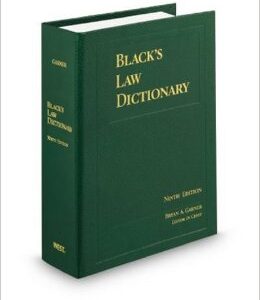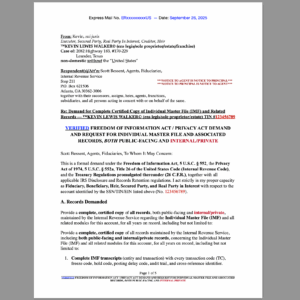Understanding Summary Judgment and Legal Framework
Summary judgment is designed to expedite litigation by resolving cases without the need for trial when the material facts are undisputed. Plaintiffs cite legal authority, including:
- Florida Rule of Civil Procedure 1.510(a)
- California Code of Civil Procedure § 437c(c)
- Federal Rule of Civil Procedure 56(a)
These rules collectively emphasize that summary judgment is appropriate when there is no genuine issue of material fact and the movant is entitled to judgment as a matter of law.
The Role of Unrebutted Affidavits
The cornerstone of Plaintiffs’ motion is the submission of three unrebutted verified commercial affidavits, which serve as self-executing contract security agreements. These affidavits affirm all material facts, claims, and stipulations presented in the Verified Complaint. In commerce and law, the maxim “An unrebutted affidavit stands as truth” is central to establishing irrefutable evidence.
Key legal principles supporting this position include:
- AN UNREBUTTED AFFIDAVIT STANDS AS TRUTH IN COMMERCE. (12 Pet. 1:25; Heb. 6:13-15;). ‘He who does not deny, admits.’
- HE WHO LEAVES THE BATTLEFIELD FIRST LOSES BY DEFAULT. (Book of Job; Mat. 10:22) — Legal maxim: ‘He who does not repel a wrong when he can occasions it.’
- AN UNREBUTTED AFFIDAVIT BECOMES THE JUDGEMENT IN COMMERCE. (Heb. 6:16-17;). ‘There is nothing left to resolve.’
Plaintiffs’ reliance on legal precedents, such as Winsett v. Donaldson and Sieb’s Hatcheries, Inc. v. Lindley, underscores that failure to rebut commercial affdavits is tantamount to admission of their Truth.
Legal Maxims and Supporting Precedent
The Plaintiffs bolster their position by invoking fundamental legal maxims and case law:
- Equality Under the Law
- All parties must be treated equally under natural, moral, and statutory law. As expressed in Hurtado v. California, “The state cannot diminish rights of the people.”
- The Sovereignty of Truth in Commerce
- Truth, when expressed in the form of an affidavit, holds absolute authority. Plaintiffs’ affidavits remain unchallenged, thereby rendering the Defendants’ silence as tacit acquiescence.
- Accountability of Public Officials
- Case law, such as AFLCIO v. Woodward, confirms that officials overstepping their lawful authority are not immune from accountability.
Material Facts and the Defendants’ Silence
Plaintiffs have meticulously demonstrated that the Defendants’ failure to rebut the affidavits constitutes tacit agreement and silent acquiescence under the Uniform Commercial Code (U.C.C.) and legal maxims. This silence affirms the Plaintiffs’ claims of breach of contract, fraud, and other wrongs. By remaining silent, the Defendants are barred from introducing defenses or counterclaims.
- Stare Decisis and Res Judicata: Plaintiffs assert that judicial precedent and doctrines of finality prevent the Defendants from disputing the facts conclusively established by their silence.
- Collateral Estoppel: Once facts are deemed admitted, they cannot be revisited in subsequent proceedings.
The Binding Nature of Unrebutted Affidavits
The incorporation of the unrebutted affidavits into the Verified Complaint renders them binding as judgment. Plaintiffs contend that these affidavits have:
- Affirmed the Defendants’ dishonor and liability.
- Established the judgment amount, penalties, and remedies.
- Prevented any subsequent dispute of material facts.
The principle of res judicata further ensures that the Plaintiffs’ claims, already admitted through silence, remain unassailable.
Conclusion
Plaintiffs’ motion for summary judgment is a textbook example of leveraging legal principles and procedural rules to achieve swift resolution. Their reliance on unrebutted affidavits and established maxims of law creates an irrefutable basis for judgment in their favor.
By granting the proposed order, the court not only adheres to the rule of law but also upholds the sanctity of truth in commerce. As Plaintiffs aptly note, “He who leaves the battlefield first loses by default.” With Defendants silent, the Plaintiffs stand poised for victory in the arena of law and equity.
